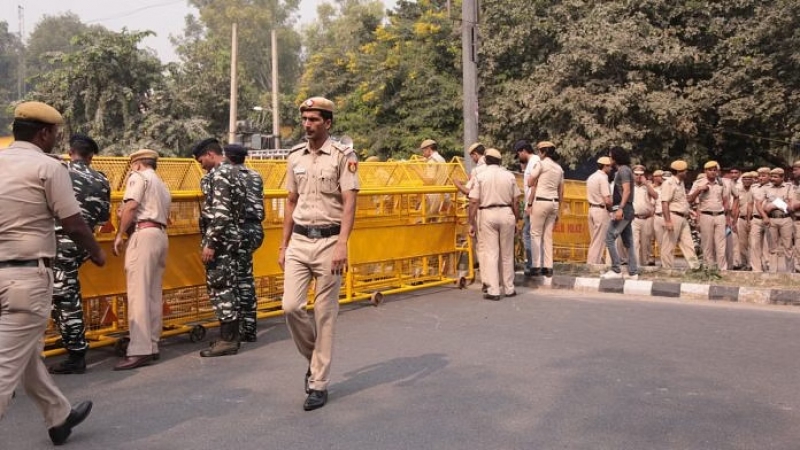Organised crime presents a multifaceted challenge to law enforcement agencies worldwide. In India, the investigation of organised crime often exceeds the capabilities of general police stations due to various factors, ranging from the intricate nature of criminal networks to resource constraints within police departments. Let's delve into why general police stations struggle with investigating organised crime, supplemented by real-life case studies to illustrate these challenges.
Sophisticated Networks: Organised crime syndicates operate with intricate hierarchies and networks that span across regions and even countries. These networks involve various illegal activities such as drug trafficking, human trafficking, extortion, and money laundering. Investigating such crimes requires specialised skills, intelligence-gathering capabilities, and often, collaboration with national and international law enforcement agencies. For example - The Mumbai underworld, notorious for its organised crime activities, presents a daunting challenge to local police stations. With its complex web of criminal enterprises involving gangs like D-Company and Chhota Rajan's gang, investigating these syndicates demands expertise in dealing with sophisticated criminals who operate across borders. Local police, lacking the necessary resources and expertise, often struggle to penetrate these networks effectively.
Resource Constraints: General police stations are typically tasked with handling a wide range of criminal cases, from petty thefts to violent crimes. Limited manpower, outdated technology, and insufficient training hinder their ability to effectively combat organised crime. Investigations into organised crime require dedicated teams equipped with specialised tools and resources. For example - with the rise of cybercrime syndicates operating globally, Indian police stations face an uphill battle in investigating these sophisticated digital crimes. Lack of cybercrime expertise and inadequate technological infrastructure often result in slow and ineffective investigations. Cybercriminals exploit loopholes in outdated systems, making it challenging for general police stations to keep pace with rapidly evolving cyber threats
Intimidation and Corruption: Organised crime thrives on intimidation, coercion, and corruption. Criminal syndicates often wield significant influence over local communities, businesses, and even law enforcement agencies. This can deter witnesses from coming forward and compromise the integrity of investigations. For example - In many Indian cities, organised crime groups extort from sex workers, madams and brothels. According to testimonies of survivors of trafficking, private investigators who facilitate identification and rescue of children from sexual exploitation in exchange of bribes, they also allow child prostitution for a premium, confinement and exploitation of sex workers by pimps, madams and brothel owners.
Legal Complexity: Investigating organised crime involves navigating through a labyrinth of legal complexities, including stringent evidentiary requirements, procedural hurdles, and jurisdictional issues. General police stations may lack the legal expertise and resources necessary to effectively prosecute organised crime cases. For example - human trafficking rings operating across international borders present legal challenges that often overwhelm local police stations. Coordinating with law enforcement agencies in multiple countries, gathering admissible evidence, and ensuring the safety of victims require specialised knowledge and resources that may be beyond the capabilities of general police stations. Survivors and social workers associated with Tafteesh share their experiences of how the local police has in many occasions refused to accept FIRs on trafficking from survivors and their families; there are instances when they have taken no action to investigate the FIRs and neglected to arrest of traffickers or take them into custody to investigate the complaints. Survivors have also shared instances when the police have refused to register complaints of threats and intimidation by traffickers pressuring them to withdraw their complaints and taken no action for victim protection knowing the vulnerabilities to threat and intimidation, stigma and shaming by traffickers.
Building a robust network of investigative agencies, such as Anti-Human Trafficking Units (AHTUs), is often viewed as a costly endeavor and not prioritized by law enforcement agencies. Despite this, the severity and profound impact of such crimes on individuals and communities make it imperative to consider these units as critical. While their importance may be underestimated in terms of resource allocation compared to other law enforcement priorities, the intensity and repercussions of these crimes necessitate a reevaluation of their significance.
One way of accelerating the growth of these investigation agencies is to allow corporates to contribute through social responsibility funds which will require the CSR policy to expand its current mandate from health, education, livelihoods to crime prevention as well.
Another key strategy involves educating political and law enforcement leaders on the significant impact and potential benefits of strengthening investigative agencies like Anti-Human Trafficking Units (AHTUs), especially in the context of the increasing globalisation and regionalisation of crime networks.
About the author:
Roop is a researcher, facilitator, and an activist, who works on issues of gender-based violence and personal growth. He is a certified coach and a practitioner of behavioural sciences, and works with individuals, groups and organisations for growth and development.
